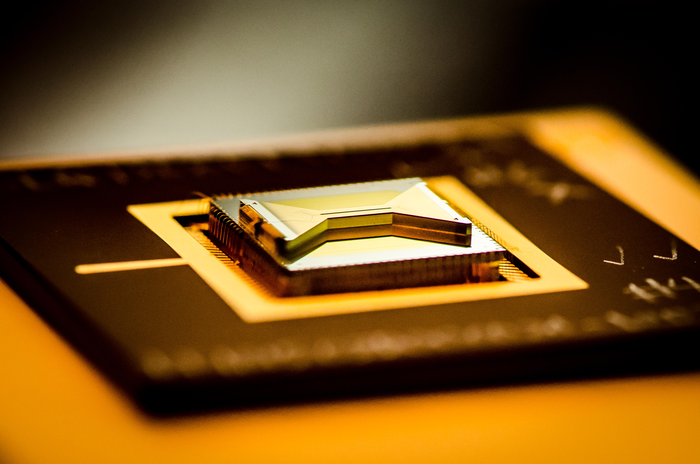Quantum computer breakthrough as scientists show vital behaviour for first time

Scientists have demonstrated new behaviour, vital for the creation of quantum computers, that marks a major breakthrough.
For the first time, researchers were able to show in an experiment that a variety of quantum computing pieces, taken together, were more accurate than the sum of their parts.
Individually, quantum computers are built out of a range of different pieces, some of which can sometimes break. But in the new experiment, scientists showed that those pieces stuck together can be less prone to error than any particular part.
Such behaviour will be necessary if quantum computers are ever relied on for practical purposes. Scientists suggest that the technology could one day change the world – by allowing us to do calculations more quickly than ever thought possible – but fundamental work like this must first be conducted to ensure those calculations are trustworthy.
In the research, scientists took a number of qubits, or the quantum version of bits, and put them together into a single thing called a “logical qubit”. That was assembled so that it could easily detect and correct errors, as well as able to tolerate faults so that any bad effects could be minimised.
That allowed scientists to show that the logical qubit was more trustworthy than the most error-prone part of the process of making it. It worked as expected 99.4 per cent of the time, despite the fact it relied on six different quantum operations that only worked about 98.9 per cent of the time.
That small-seeming difference would be a vast improvement if produced in real computers: as quantum computers are scaled up into larger and more practical machines, any errors will be compounded and could quickly reduce the utility of the computer.
“Qubits composed of identical atomic ions are natively very clean by themselves,” said Christopher Monroe, who helped lead the research. “However, at some point, when many qubits and operations are required, errors must be reduced further, and it is simpler to add more qubits and encode information differently.
“The beauty of error correction codes for atomic ions is they can be very efficient and can be flexibly switched on through software controls.”
As with any other system, computers will inevitably suffer errors eventually. But in existing computer technologies, the system is able to keep watch on itself, getting rid of those mistakes with sufficient accuracy that the results can be relied on.
“What’s amazing about fault tolerance, is it’s a recipe for how to take small unreliable parts and turn them into a very reliable device,” said Kenneth Brown, a professor of electrical and computer engineering at Duke and a coauthor on the paper. “And fault-tolerant quantum error correction will enable us to make very reliable quantum computers from faulty quantum parts.”
The study, ‘Fault-tolerant control of an error-corrected qubit’, is published today in Nature.
Join our commenting forum
Join thought-provoking conversations, follow other Independent readers and see their replies
Comments
Bookmark popover
Removed from bookmarks